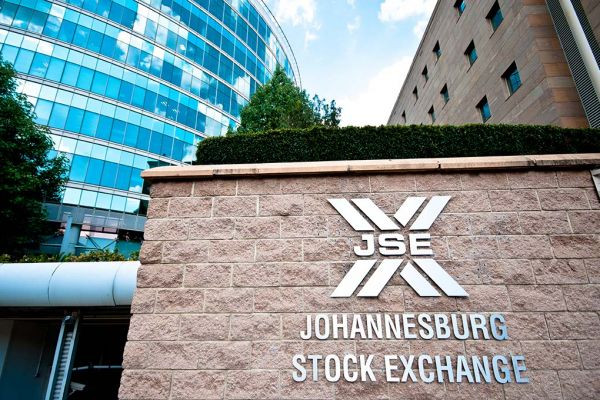The Johannesburg Stock Exchange (JSE) stands as Africa's largest and most prominent stock exchange, playing a crucial role in the continent's financial landscape. Established in 1887, the JSE has evolved into a dynamic marketplace that attracts both local and international investors. This article delves into the history, structure, operations, and significance of the JSE, providing a comprehensive understanding of its role in the global financial system.
History of the Johannesburg Stock Exchange
Origins and Early Development
The Johannesburg Stock Exchange was founded by Benjamin Wollan during the South African gold rush. Initially, trading occurred in informal settings, but as the number of listed companies and investors grew, there was a need for a formal exchange. The JSE was formally established on November 8, 1887, in a small office on Commissioner Street, Johannesburg (JSE - History).
Modernization and Growth
Over the years, the JSE underwent significant transformations. The exchange embraced technological advancements, moving from open outcry trading to an electronic trading system in 1996 (JSE - Market Modernization). This modernization enhanced trading efficiency and transparency, attracting more investors and increasing liquidity.
Global Recognition
In 2003, the JSE acquired the South African Futures Exchange (SAFEX), expanding its product offerings to include derivatives (JSE - SAFEX Acquisition). This acquisition positioned the JSE as a comprehensive exchange, offering equities, bonds, derivatives, and commodities. Today, the JSE is recognized globally for its regulatory standards and robust trading environment (JSE - Global Recognition).
Structure and Operations of the JSE
Market Segments
The JSE operates several market segments, catering to different types of securities and financial instruments (JSE - Market Segments):
- Equity Market: The primary market for trading shares of publicly listed companies.
- Debt Market: Facilitates the trading of bonds and other debt instruments.
- Derivatives Market: Includes futures, options, and other derivative products.
- Commodity Derivatives Market: Focuses on trading agricultural and financial commodities.
- Interest Rate Market: Deals with interest rate derivatives and related products.
Trading Hours
The JSE operates from Monday to Friday, with trading sessions running from 9:00 AM to 5:00 PM South African Standard Time (SAST) (JSE - Trading Hours). Pre-opening and post-closing sessions are also available for order placement and adjustment.
Regulatory Framework
The JSE is regulated by the Financial Sector Conduct Authority (FSCA) and adheres to stringent listing and trading requirements (JSE - Regulatory Framework). This regulatory framework ensures market integrity, investor protection, and fair trading practices.
Key Indices on the JSE
FTSE/JSE All Share Index (ALSI)
The FTSE/JSE All Share Index is the benchmark index of the JSE, representing the performance of all listed companies. It serves as a barometer of the South African stock market's overall health and is widely used by investors for tracking market trends (FTSE/JSE All Share Index).
FTSE/JSE Top 40 Index
The FTSE/JSE Top 40 Index includes the 40 largest companies by market capitalization. It provides a snapshot of the blue-chip segment of the market, offering investors exposure to the most significant and stable companies (FTSE/JSE Top 40 Index).
Other Notable Indices
- FTSE/JSE Mid Cap Index: Covers medium-sized companies, providing insights into the mid-tier market.
- FTSE/JSE Small Cap Index: Focuses on smaller companies, highlighting growth opportunities.
- FTSE/JSE Sector Indices: Track specific sectors such as financials, resources, and industrials (FTSE/JSE Sector Indices).
Investing in the JSE
How to Get Started
Investing in the JSE is accessible to both local and international investors. Here are the steps to get started (Investing in the JSE):
- Open a Brokerage Account: Choose a reputable brokerage firm that offers access to the JSE.
- Fund Your Account: Deposit funds into your brokerage account to start trading.
- Research and Select Stocks: Conduct thorough research to identify promising stocks or other securities.
- Place Orders: Use your brokerage platform to buy or sell securities on the JSE.
Investment Products
The JSE offers a wide range of investment products, including (JSE Investment Products):
- Shares: Ownership stakes in publicly listed companies.
- Exchange-Traded Funds (ETFs): Investment funds that track specific indices or sectors.
- Bonds: Debt securities issued by companies or government entities.
- Derivatives: Contracts such as futures and options for hedging or speculative purposes.
Benefits of Investing in the JSE
- Diversification: Exposure to a broad range of industries and companies.
- Growth Potential: Access to emerging markets and high-growth sectors.
- Dividend Income: Potential for regular income through dividends.
- Capital Appreciation: Opportunity for long-term capital gains as companies grow and increase in value (Benefits of Investing in the JSE).
Challenges and Opportunities
Economic Factors
The performance of the JSE is influenced by various economic factors, including GDP growth, inflation rates, and currency fluctuations. Investors must stay informed about macroeconomic trends and their potential impact on the market (Economic Factors Affecting the JSE).
Political Environment
Political stability is crucial for market confidence. South Africa's political landscape can affect investor sentiment, particularly regarding policy changes, regulations, and governance (Political Environment and the JSE).
Technological Advancements
The JSE continues to embrace technology to enhance trading efficiency and security. Innovations such as blockchain and artificial intelligence hold the potential to further transform the exchange and improve market operations (Technological Advancements at the JSE).
Global Integration
The JSE's integration with global markets presents both opportunities and challenges. While it attracts foreign investment and enhances liquidity, it also exposes the market to global economic and geopolitical risks (Global Integration of the JSE).
Conclusion
The Johannesburg Stock Exchange is a cornerstone of Africa's financial ecosystem, offering diverse investment opportunities and fostering economic growth. With a rich history, robust regulatory framework, and commitment to innovation, the JSE remains a vital platform for investors seeking exposure to South Africa and beyond. Whether you are a novice or an experienced investor, understanding the dynamics of the JSE can help you make informed investment decisions and capitalize on the potential of this dynamic market.
For those looking to diversify their investment portfolio, the JSE provides a gateway to Africa's largest economy and a myriad of growth opportunities. As with any investment, it is essential to conduct thorough research, stay informed about market developments, and seek professional advice when necessary.
By exploring the Johannesburg Stock Exchange, investors can tap into a vibrant market that offers both challenges and rewards, contributing to their financial success and the broader economic development of the region (Exploring the JSE).










